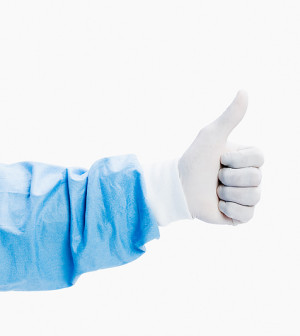- Could Your Grocery Store Meat Be Causing Recurring UTIs?
- Are You Making This Expensive Thermostat Error This Winter?
- Recognizing the Signs of Hypothyroidism
- 10 Strategies to Overcome Insomnia
- Could Artificial Sweeteners Be Aging the Brain Faster?
- Techniques for Soothing Your Nervous System
- Does the Water in Your House Smell Funny? Here’s Why
- Can a Daily Dose of Apple Cider Vinegar Actually Aid Weight Loss?
- 6 Health Beverages That Can Actually Spike Your Blood Sugar
- Treatment Options for Social Anxiety Disorder
Health Highlights: Oct. 6, 2014


Here are some of the latest health and medical news developments, compiled by the editors of HealthDay:
Researchers Who Discovered ‘Inner GPS’ Win Nobel Prize in Medicine
American-British researcher John O’Keefe was one of three people awarded this year’s Nobel Prize in medicine for discovering a “inner GPS” in the brain that assists in navigation.
The Imperial College London scientist and fellow co-winners Edvard and May-Britt Moser of Norway conducted their research in rats, but there is evidence that humans have the same system in their brains, Associated Press reported.
“This year’s Nobel Laureates have discovered a positioning system, an ‘inner GPS’ in the brain that makes it possible to orient ourselves in space,” the Nobel Assembly said.
The discovery represents a major shift in knowledge of how brain cells work together, and could lead to improved understanding of mental functions such as memory, thinking and planning, and about the “devastating spatial memory loss” that occurs in people with Alzheimer’s disease, according the assembly.
The first component of this “inner GPS” was uncovered by O’Keefe in 1971. He found that a certain type of nerve cell was always activated when a rat was at a specific location in a room, AP reported.
Further investigation by O’Keefe, 75, showed that these “place cells” were creating a map of the rats’ environment.
The Mosers, of the Norwegian University of Science and Technology, discovered another type of nerve cell, called the “grid cell.” This type of cell creates a coordinate system for precise positioning and path-finding, according to the assembly, AP reported.
“Thanks to our grid and place cells we don’t have to walk around with a map to find our way each time we visit a city because we have that map in our head,” Juleen Zierath, chair of the medicine prize committee said. “I think without these cells we would have a really hard time to survive.”
—–
Many College Football Players Don’t Report Hits to Head
Offensive lineman are the least likely of college football players to report that they’ve suffered a concussion or less significant blows to the head, according to new research showing that self-reporting of concussions varies by players’ positions.
It also found that freshmen are more likely than upperclassmen to believe their coach would think they did the right thing by self-reporting a concussion, The New York Times reported.
Researchers surveyed 730 Division I football players on 10 teams during the 2012 season and found that for every diagnosed concussion, players suffered six significant head hits that they suspected may have caused a concussion but did not report.
For every diagnosed concussion, players also took 21 smaller hits that they did not report, according to Christina Baugh, of Harvard University, and colleagues, The Times.
The researchers also found that attempts by the NCAA and other organizations to boost awareness of concussions have been uneven.
The findings appear in the Journal of Neurotrauma and The Journal of Law, Medicine & Ethics.
The deaths of three high school football players within the past week have raised new questions about whether football coaches, trainers and doctors are doing enough to monitor players for concussions, The Times reported.
Copyright © 2026 HealthDay. All rights reserved.










